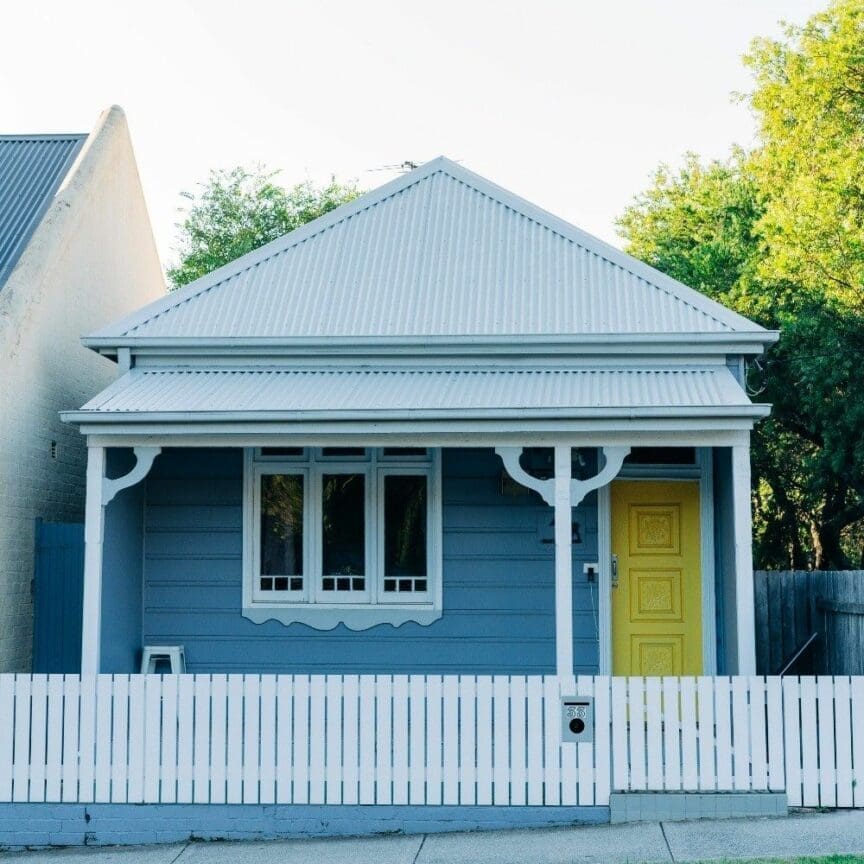There are a number of costs which don’t immediately come to mind…
Home purchase costs may vary depending on such things as the type of property, the location and value of the property. Let us help you navigate through these costs so when the time comes for you to buy your first home, you have them in your budget.
Stamp Duty
This will be your biggest upfront cost after the deposit. The exact amount depends on the value of the property and the state in which you buy it. Stamp duty varies greatly from state to state and the rules (and exemptions) can seem complicated. Stamp duty must be paid within three months of the date of exchanging contracts, unless buying ‘off the plan’ or a house and land package. The various duty schemes change almost yearly, so be sure to double check your state. Fortunately, most states offer stamp duty exemptions and concessions to first home buyers.
Mortgage Registration and Transfer Fees
You’ll need to pay for the formal registration of your mortgage and as the new owner, the cost of transferring the title to the property into your ownership will fall to you, too. The mortgage registration fees vary from state to state. The transfer fees, on the other hand, are generally more expensive, ranging from a flat fee to thousands of dollars. This is a fee levied by state governments to cover the cost of transferring the title. We recommend that you check your state website for the fees involved.
Loan Application or Establishment Fee
When applying for a home loan, this is the fee for applying or setting up the loan. The application fees depend on the loan and lender. However, some lenders will waive this fee under certain circumstances, so it’s worth asking.
Valuation Fee
Your lender usually requires a formal valuation of the property you are buying. This fee may be included in the application fee charged by your lender.
Lenders Mortgage Insurance
Without a deposit of 20 per cent or more, most lenders will require you to pay the lender to take out Lenders Mortgage Insurance. This insurance protects the lender if you default on the loan and the property is sold for less than the outstanding loan amount. Premiums vary according to the loan amount, property price and the loan-to-value ratio. This can enable buyers to purchase a home with as little as 5 per cent of the purchase price as a deposit, helping them to get a foot on the property ladder sooner rather than later. Genworth’s LMI premium estimator is an online calculator that can provide you with an estimate of the LMI fee payable by you to the lender to take out LMI. Visit the Genworth website . au/premiumestimator
Conveyancing and Legal Fees
Conveyancing is the process of transferring the property from the name of the seller to the buyer. You will need to engage a solicitor or conveyancer to do this. While it is possible to complete the legal aspects of buying a property yourself, it’s generally recommended that you engage a conveyancer or solicitor to prepare the documents for you and provide advice. A conveyancer or solicitor will help you meet all legal requirements involved with purchasing your home. They’ll handle most of the paperwork and can answer any questions you may have about the process and explain the terms and conditions of the contract. Do your research before hiring a conveyancer. Ask your family and friends if they can recommend someone they’ve used before or ask your real estate agent for their recommendation. There are no set fees charged for conveyancing. You should get a written estimate of the likely costs before engaging the solicitor or conveyancer.
Real Estate Agent Fees
The vendor will be required to pay any real estate agent commissions on the sale of their home to you. However, if you’re selling your current home at the same time and you are selling through a real estate agent then you will need to pay the commission on your sale also to your real estate agent.
Council and Utilities Costs
After purchasing the property, you’ll need to pay the vendor for the amount of prepaid council or water rates as at completion date. The vendor will have paid any rates owing to the council – generally to the end of the quarter – and they’ll simply add your portion of that amount to the purchase price.
Pest and Building Inspection
Once you’ve decided on a property and before you buy, it’s a good idea to get a qualified building inspector to assess it for structural integrity, safe electrical fittings and future maintenance costs and necessary repairs. These checks are particularly important for older homes. You should also get a pest inspection to ensure the property doesn’t have a termite problem or other pest issues. This is one of the most common, and important, upfront costs when buying a home. These checks will help to give you peace of mind and could save you a lot of money in the future.
Strata Inspection
A strata inspection examines and reports on the written records of the owners’ corporation if you are buying an apartment. It is additional to the certificate that the seller supplies, providing relevant information about strata levies and insurances.
Homebuilding Insurance
The lender will usually require you to take out home building insurance before completing your purchase. The cost of building insurance will depend on the age, size, location and type of construction of the property. Two types of insurance cover are available.
- Replacement cover: to reinstate your property to its former condition. It means, simply, new for old
- Indemnity cover: to repair or reinstate your property taking into account depreciation on the dwelling
Contents insurance is also a good thing to get from time of exchange if you want to cover fixtures and fittings included with the sale.
Removalist and Cleaning Costs
You need to budget for the cost of moving all your belongings to the new property. Get quotes from a few different removalist companies or hire a truck or trailer and ask friends to help you move. Consider whether you want to pay for a professional to clean your old property before you hand in the keys. Your new property may also need cleaning before you move in.
Checklist for Choosing a New Home
Location
- Does the area have the local amenities you might need?
- Shops
- Schools and child care
- Doctors/hospital
- Public transport
- Food and entertainment
- Are there any local council planning changes or planned infrastructure developments in the near future?
- How long will it take you to travel to work?
Outside the Property
- Is there off-street parking?
- Is the building structurally sound?
- Are there signs of damp around the house (eg bubbling paint, a musty smell)?
- Check the condition of paintwork, windows, fences, gardens, roof and guttering
- Is it possible to extend the property in the future?
- How much northerly sunlight does it get?
- Is it noisy? Traffic, trains, planes
Inside the Property
- Check what is included – carpets, curtains, blinds, light fittings, air conditioning, heating and any appliances
- Are there enough bedrooms and bathrooms?
- What is the condition of the electrical wiring?
- Is the plumbing operational?
- Are walls, ceilings and floors in good condition?
- Is the kitchen in good condition? n Do all the windows and doors open?
- Is there enough storage space?
- Is there space for your fridge, dishwasher, washing machine, clothes dryer etc.?
https://www.genworth.com.au/media/se1nio0e/its-my-home_2019_realview_hi_singles.pdf
Photograph by Nicolas Gonzalez for Unsplash


